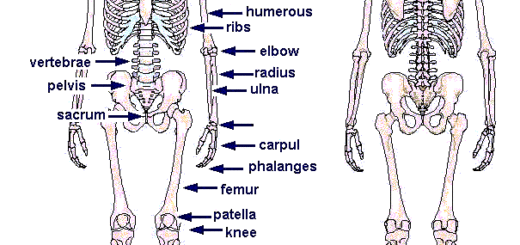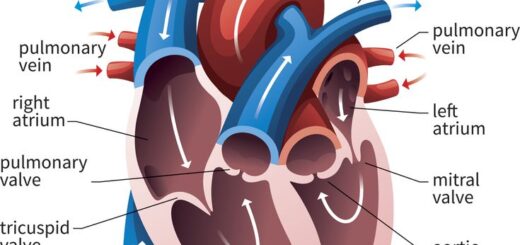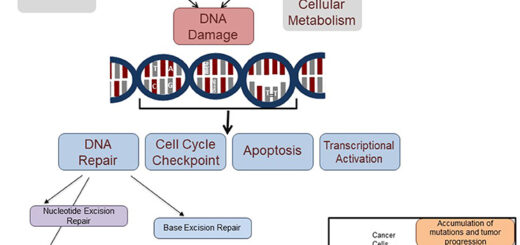Thyroid gland, Diseases of thyroid gland and Function of Parathyroid glands
Thyroid gland lies in the anterior part of the neck and in a close contact with the trachea, Its colour is slightly red, It is surrounded by a membrane of connective tissue, It consists of two lobes that are connected together by an isthmus, the thyroid gland secretes two important hormones which are thyroxine hormone and calcitonin hormone.
Thyroid gland
Thyroxine hormone (iodine element is essential for its formation) that has many effects on different parts of the body such as:
- It affects and stimulates physical and mental growth.
- It affects and controls the main metabolic rate.
- It increases the absorption of carbohydrates ( monosaccharides) from the intestine.
- It maintains the skin and hair healthy.
Calcitonin hormone which decreases the calcium level in the blood and it prevents the withdrawal of calcium from the bones.
Diseases of thyroid gland: The diseases are caused due to the increase or decrease in the secretion of thyroxine hormone such as goiter and there are two types of diseases which are:
- Simple goiter which arises due to the hyposecretion of thyroxine hormone.
- Exophthalmic goiter which arises due to the hypersecretion of thyroxine hormone.
Hypothyroidism
Causes: hyposecretion of thyroxine hormone, due to the deficiency of iodine in food, water & air.
Treatment: addition of iodine to salt and different food.
Complications that result from the severe hyposecretion of thyroxine hormone:
Cretinism
Causes: acute hyposecretion of thyroxine hormone during childhood.
Symptoms :
- Physical growth: large head, short stature and short neck.
- Mental growth: it may cause permanent mental retardation.
- Sexual maturity: it may cause a delay in sexual maturity.
Myxodema
Causes: acute hyposecretion of thyroxine hormone in adults.
Symptoms:
- Skin dryness and loss of hair.
- Weight gain and obesity.
- Decreasing the main metabolic rate that causes cold intolerance.
- Decreasing the heartbeats and rapid fatigability.
Treatment: by using thyroid gland hormones or its extracts under the supervision and regular consultation of a specialist.
Hyperthyroidism
Exophthalmic goiter
Causes: hypersecretion of thyroxine hormone.
Symptoms:
- Noticed enlargement of the thyroid gland and anterior part of the neck with protrusion of the eyeballs.
- Increase in the food oxidation and metabolic rate.
- Increase in the heartbeats.
- Loss of weight and nervous irritability.
Treatment is either by surgical removal of a part of the thyroid gland or using other medications to suppress the gland.
Parathyroid glands
It consists of four small separate lobes, where each two of them is located on each side of the thyroid gland and it secretes parathormone hormone:
The function of parathormone hormone:
- It plays an important role with calcitonin hormone (secreted from thyroid gland) in preserving the normal calcium level in blood.
- Amount of parathormone hormone depends on the calcium level in the blood, where its secretion increases when the calcium level in blood decreases.
Hypersecretion of parathormone hormone (Hyperparathyroidism) leads to increasing the calcium level in the blood, as most of the calcium is released from the bones which leads to bone resorption and the bones become fragile and liable for bending and fracture.
Hyposecretion of parathormone hormone (Hypoparathyroidism) leads to:
- Decreasing the calcium level in the blood.
- Painful convulsions and muscle spasm.
- Increasing the excitability of nervous system.
Endocrine system, Endocrine glands, Pituitary gland & Hormonal coordination in living organisms



